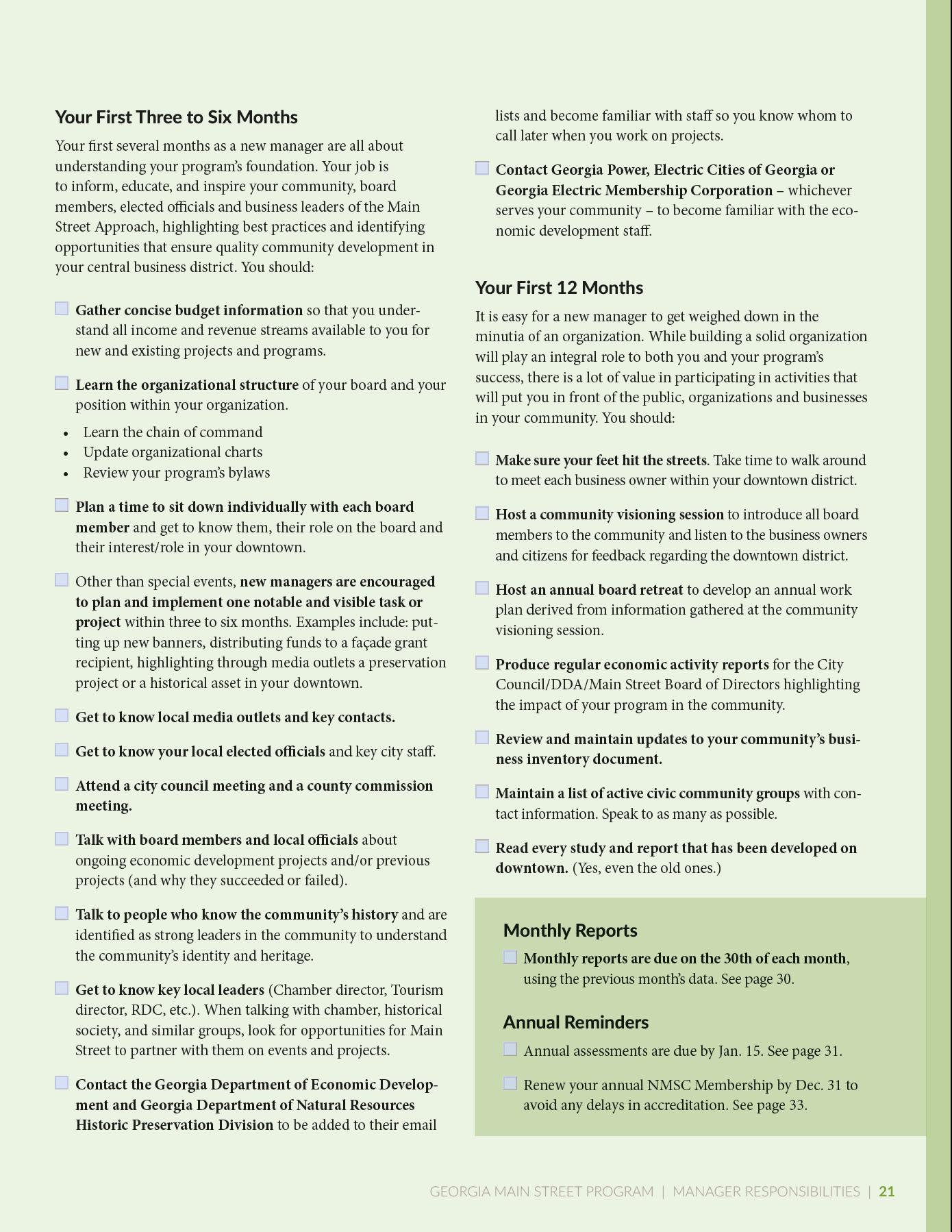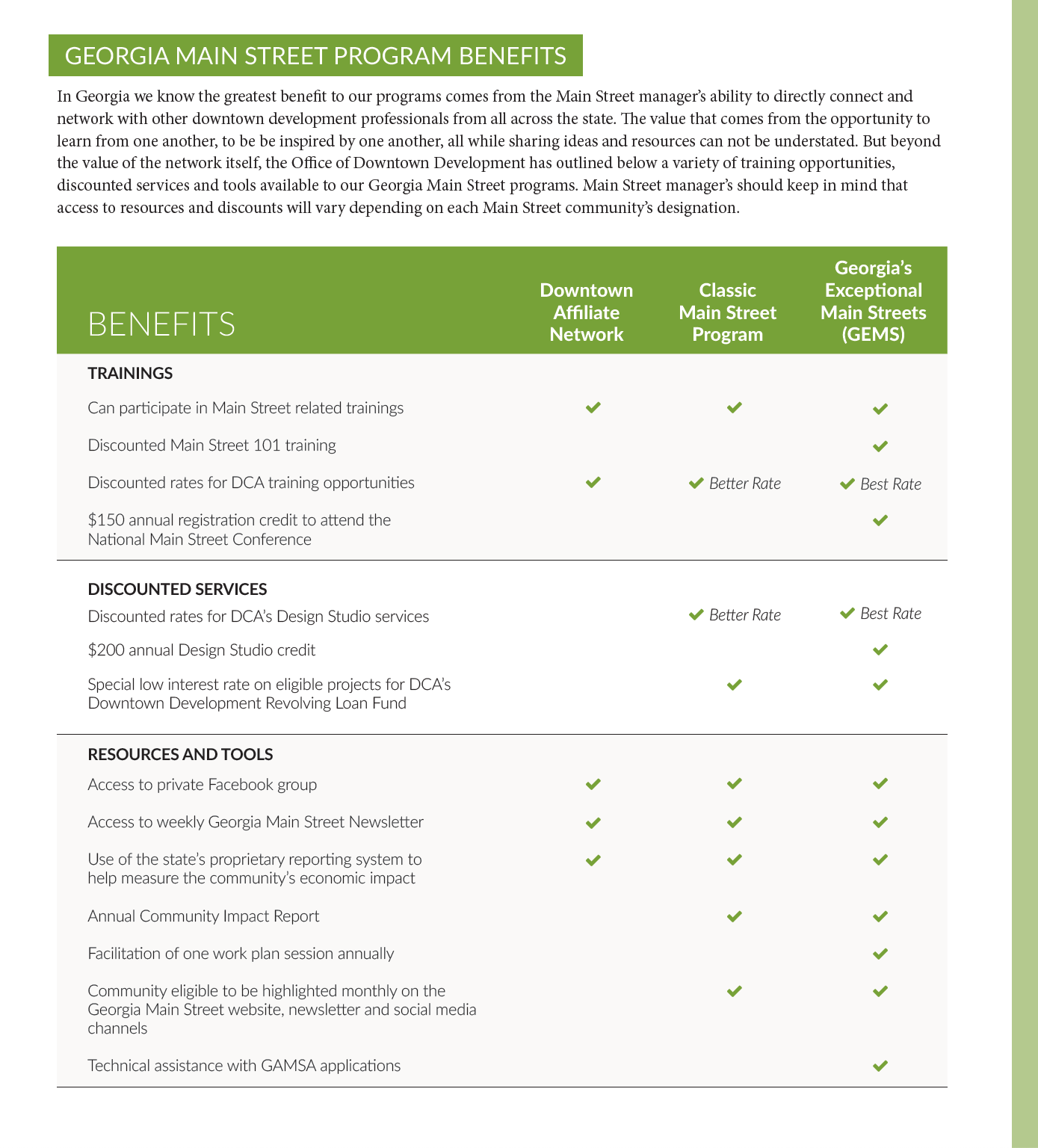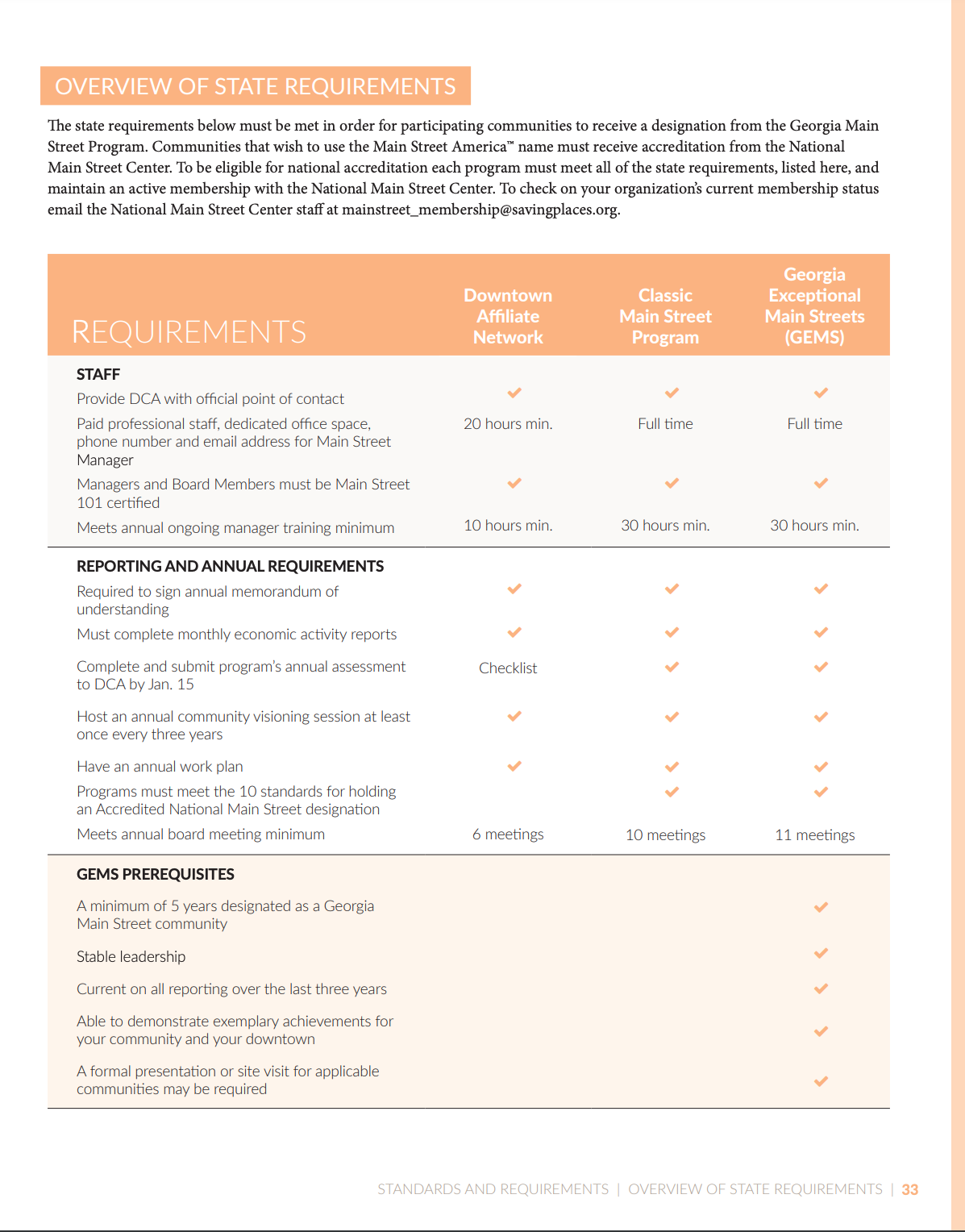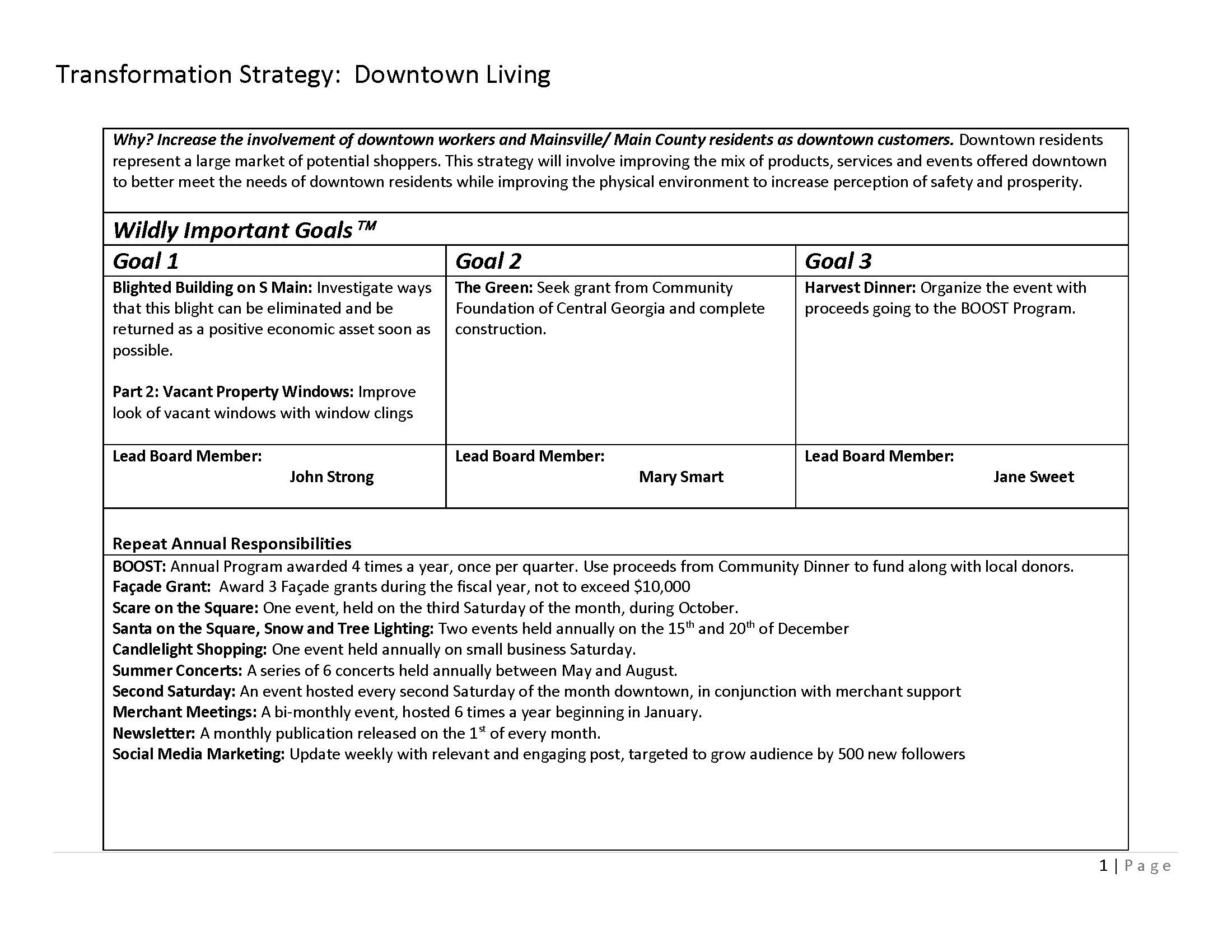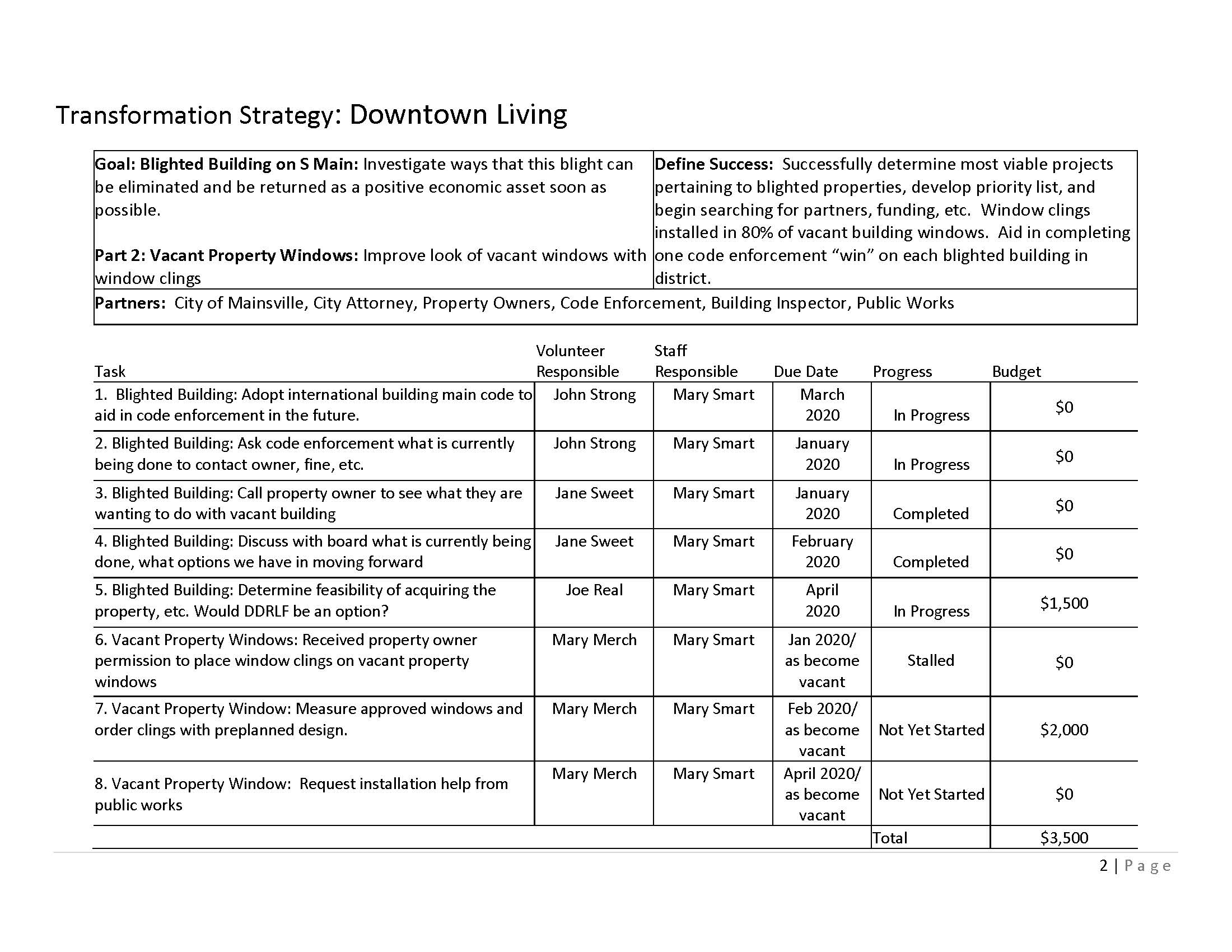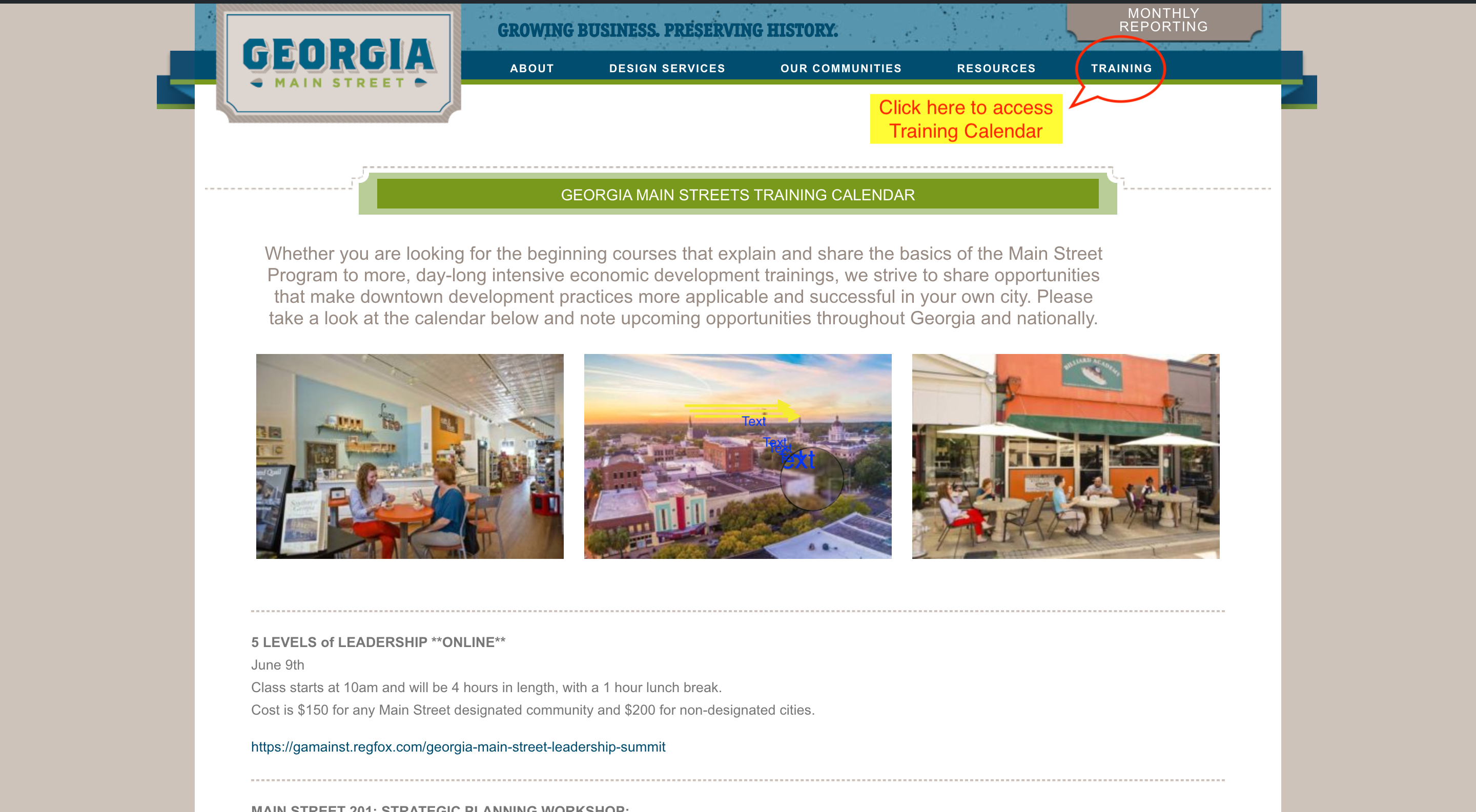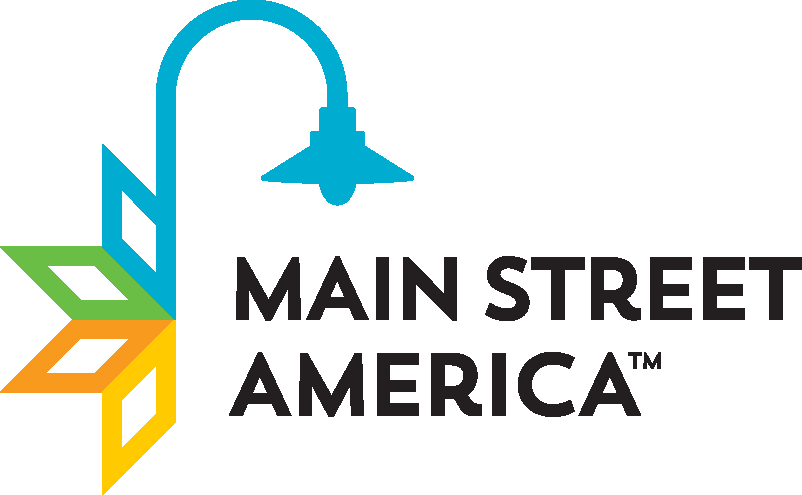
Submitting monthly economic impact reports to the Office of Downtown Development will be one of the most important responsibilities asked of you as a Main Street Manager. In Georgia, monthly reporting is required for all Main Street Georgia communities, regardless of your community’s individual designation. Each Main Street program will have 30 days from the last day of the month to submit their previous month’s report. The easiest way to think of it is that we are always reporting a month behind, because you can’t report on something that hasn’t happened. For example, January’s report is due in February, and February’s report is due in March. Any report submitted after 30 days will be considered late.
But why is reporting important? Monthly reports allow us to capture and economic snapshot of what is happening at this particular moment in time in your community. As a stand alone report it doesn’t tell us much, but when we compile months or even years worth of data together we can begin to see trends in business development, job growth, private and public investment. These reports can help us as an office see where the communities priorities lie and identify gaps in funding or resources.
If you have questions regarding any of the information submitted, or if you need to adjust your information please reach out to Ellen Hill at ellen.hill@dca.ga.gov and she will be happy to assist you.
We know that Monthly Reporting can be complicated work, we also know that everyone has different learning styles. It is for this reason we have developed two resources to help guide you through the monthly reporting process. The below video will walk you through how to complete the monthly reports, step by step, using a pre-recorded webinar.
For those who feel more comfortable learning through reading we have developed a Monthly Community Activity Report Guide that will take you step by step through the reporting process but can be read instead of watched. There is also a copy of this document available for download using the link below.

